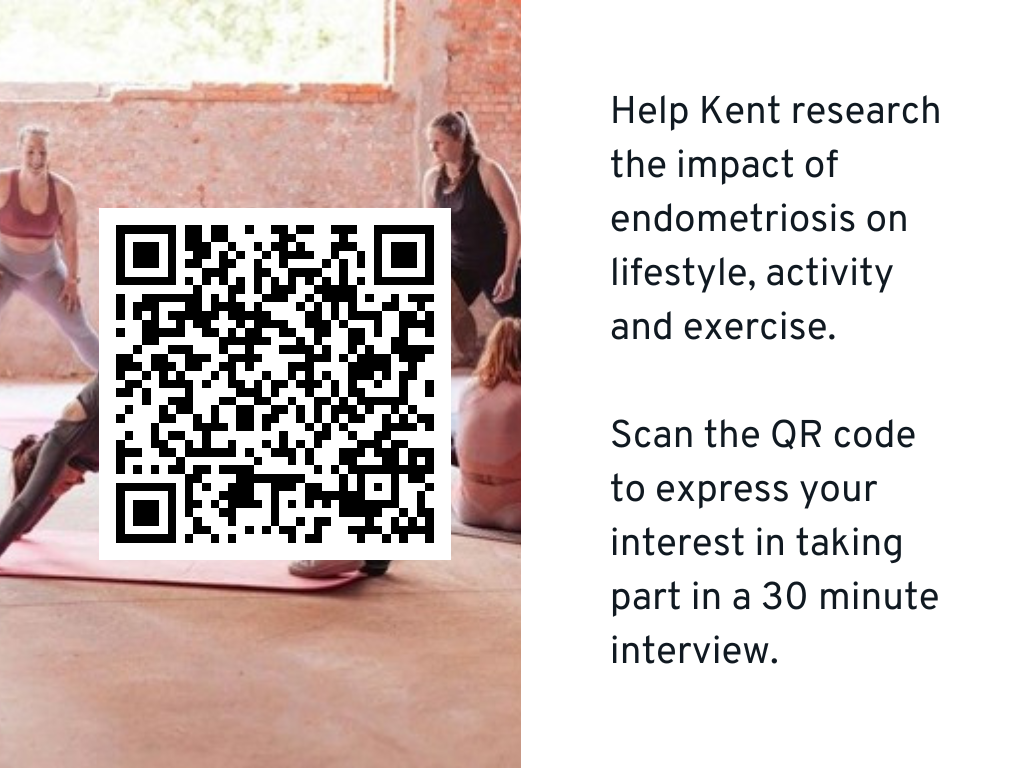Endometriosis (Endo) is the chronic, lifelong illness you probably haven’t heard much about.
Ellie Gadsdon-Baybutt, a Research Assistant based in the Centre for Health Service Studies, is working with Principal Investigator on the project, Kate Day, to research the impact of Endo on lifestyle, activity and exercise. Here, she explains why their research is so important and what you can do to support it.
What is endometriosis?
Endo is characterized by the growth of tissue similar to the endometrium and uterus lining outside the uterine cavity, usually around the pelvic region, but can spread to other organs like the lungs and brain. Its progression varies by person and its aetiology is largely unknown.
If it’s already recognised as a disease, it’s being dealt with, right?
Endo is known as the ‘missed disease’ due to its slow diagnostic rate. On average, it takes 7.5 years for endo to be identified. Iris KerinOrbuch, a MIGS surgeon in Beverly Hills, California suggests endo symptoms are routinely misattributed as they are commonly associated with other, more recognised diseases, such as irritable bowel. Importantly, she also suggests medical gaslighting that belittles patients’ experiences and normalizes ultra-painful menstruation plays a large role in slowing down the diagnostic process. This leaves many women uncertain about their futures and within themselves.
There is a growing body of research into the physical and mental impacts of endometriosis, naming ‘shorter period cycles’ and ‘early menstruation’ as warning signs for disease onset, and highlighting emotional dysregulation, depression, pain symptoms, anxiety and distress as commonly linked with the disease. Despite this, there is a lack of research investigating the personal impacts of endometriosis and how the disease affects everyday activity, meaning the gravity of endo’s impacts are not fully recognised.
Well, what are you going to do about it?
We want to help change this lack of awareness in two ways. Firstly, our pilot study will give women an opportunity to share their endometriosis story, and secondly, will form a stepping stone for a body of research that focuses on how endometriosis affects everyday activity and women’s quality of life, bringing more awareness to the real impacts endometriosis can have on lifestyle trajectory.
Can I do anything to help?
You can help by sharing your endometriosis story with us through a 30 minute interview with either me (Research Assistant) or Kate Day (Principal Investigator). These interviews will form the data needed for our pilot study, and you will be sent the results of the research after it is completed.
To sign up, please complete this form or contact either me or Kate using the emails below. In your email please include dates you would be available for the 30 minute interview, whether you’d like it to be online or at the University of Kent, and any reasonable adjustments you’d like us to make.
Me: eg511@kent.ac.uk
Kate: K.Day-398@kent.ac.uk
Interviews are now live!
Why Are You Conducting the Study?
Endometriosis affects 1/10 women, yet is still one of the most understudied and misdiagnosed areas of women’s health.
We want to bring attention to the impacts the disease can have on everyday activity and personal life through the voices of women who experience these daily.
Why should I take part?
You would be contributing to a new, growing body of research. People who take part in the study will receive the results of the study after its completion, could be offered to take part in more research, and will be given the opportunity to win a £30 Amazon voucher.
We want to base our research around your personal story, so this research relies on you to take part.
What will I have to do?
All we need from you is your endometriosis story. You can share this with us through a 30 minute online or in-person interview which will be processed alongside other women’s experiences.
Remind me again, how I take part?
To take part, please please complete this form or contact me or Kate Day using the contact details below. In your email please include dates you would be available for the 30 minute interview, whether you’d like it to be online or at the University of Kent, and any reasonable adjustments you’d like us to make.
Me: eg511@kent.ac.uk
Kate: K.Day-398@kent.ac.uk



